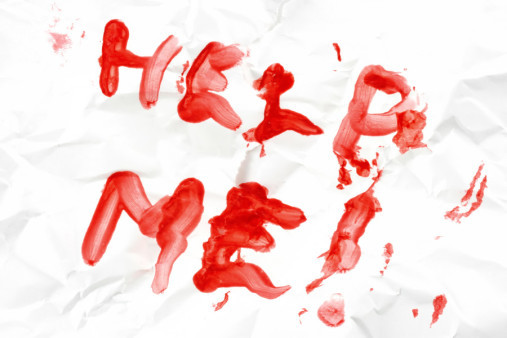
Why do people self harm or hurt themselves?
Self harm includes not only cutting, but behaviors such as burning, restricting food, bruising, or any other physical harm.
Reasons people hurt themselves:
- To feel alive
- Punish
- To have control
- To not feel numb
- Sense of relief
Inside the mind of someone who hurts themselves
No one really understands me. I feel sad but everyone around me tells me that I should be happy because I am healthy, I have family who loves me….I don’t have any reason to be unhappy. It’s true. I really don’t have any reason to not be happy but I still feel so sad. And numb. No one really understands me. I feel so alone.
In that empty, lonely space she uses a safety pin to cut her arm.
Slightly disassociated. With anger. With sadness. Punishing myself because I feel this way. Punishing myself. Relief. It hurts. The tears are because it hurts. Finally there is a reason to cry. It hurts. I’m alive. I’m not numb. Relief because I actually feel alive. This is my secret space where I make sense. And over time I will be intimately connected to my pain and this secret will create a strange distance between me and my friends and my family. Because I know they will not understand it. I don’t want to scare them. But I need to keep this in my life so I can be alive, without it my sadness might take me to a place that scares me, like death. Because when I feel numb, it feels like I’m already dead.
Understanding the psyche
Often times, sadness doesn’t have a conscious reason. So someone might feel sad without being able to logically explain it, when this happens one might feel guilty for having no justified reason for feeling this way. As a result of feeling guilty or shameful, they might try to hide their sadness or they might show other more “acceptable” feelings such as anger or irritability.
On the other hand, some people might be able to explain it, but understanding why sadness exists, does not always make it go away.
In an unconscious effort to protect their feeling of relief, punishment, or feeling alive, a self-harming person might create distance between themselves and others. Often times, the distance is created through anger or irritability. People easily back away when confronted with anger. Some people suffering with emotional pain and hurting themselves, will also be isolated. These are people that need the greatest support and care.
Other people who self harm may not be distancing themselves from others, at all. In fact, they may be letting others into their psychological world by either sharing their feelings, or by overtly or covertly letting others see their injury. These people are NOT seeking attention. Rather, they have an unconscious need for a sense of care by others. They don’t need you to “fix” them, but they are in need of help.
The goal in therapy, is to figure out what you are unconsciously doing, communicating, or needing. Followed by identifying what your “wound” is. Often times there has been an event where you’ve internalized a sense of “I don’t matter,” “I’m not good enough,” “I deserve to be hurt.” Many times this “event” triggered a faulty belief; it might have been created through causal circumstances, such as feedback you are getting on some level from people around you (i.e. friends). Sometimes there are a series of events that occur, which then trigger a belief system. It should also be noted that a chemical imbalance could be occurring which affects how you are interpreting your life experience. Regardless if a “reason” is discovered, the critical part of treatment is creating a shift in the psyche that moves from “I need others to make me feel better,” to “I need to help me feel better because I deserve to be happy.” This happens through witnessing your experience, feeling heard, seen and understood, identifying current “self talk” and changing that self dialog, expanding perception, being curious, gaining a sense of wholeness and becoming vulnerable so you can look at defenses you have built to protect yourself.
I have tremendous experience working with clients through this time in their life. If you are suffering in this way or impacted by someone suffering please contact me at Samantha@bepresentmft.com or (805)231-1094.
I am also available for therapists who are seeking consultation on cases where their client is suffering with self-harming behaviors.
Quick short list of self care/replacement behaviors:
- Scream in a pillow
- Watch a sad movie & have a cathartic cry
- Go for a run
- Turn on music, and dance
- Write a poem
- Feel your heartbeat (two fingers on your neck, feel your pulse)
- Go outside, notice the clouds, tree, weather, nature
- Sit in front of a fan & feel the wind
- Find sunshine through a window or outside and feel it
Samantha Wyllie, MA MFT Lic#83670
www.bepresentmft.com

